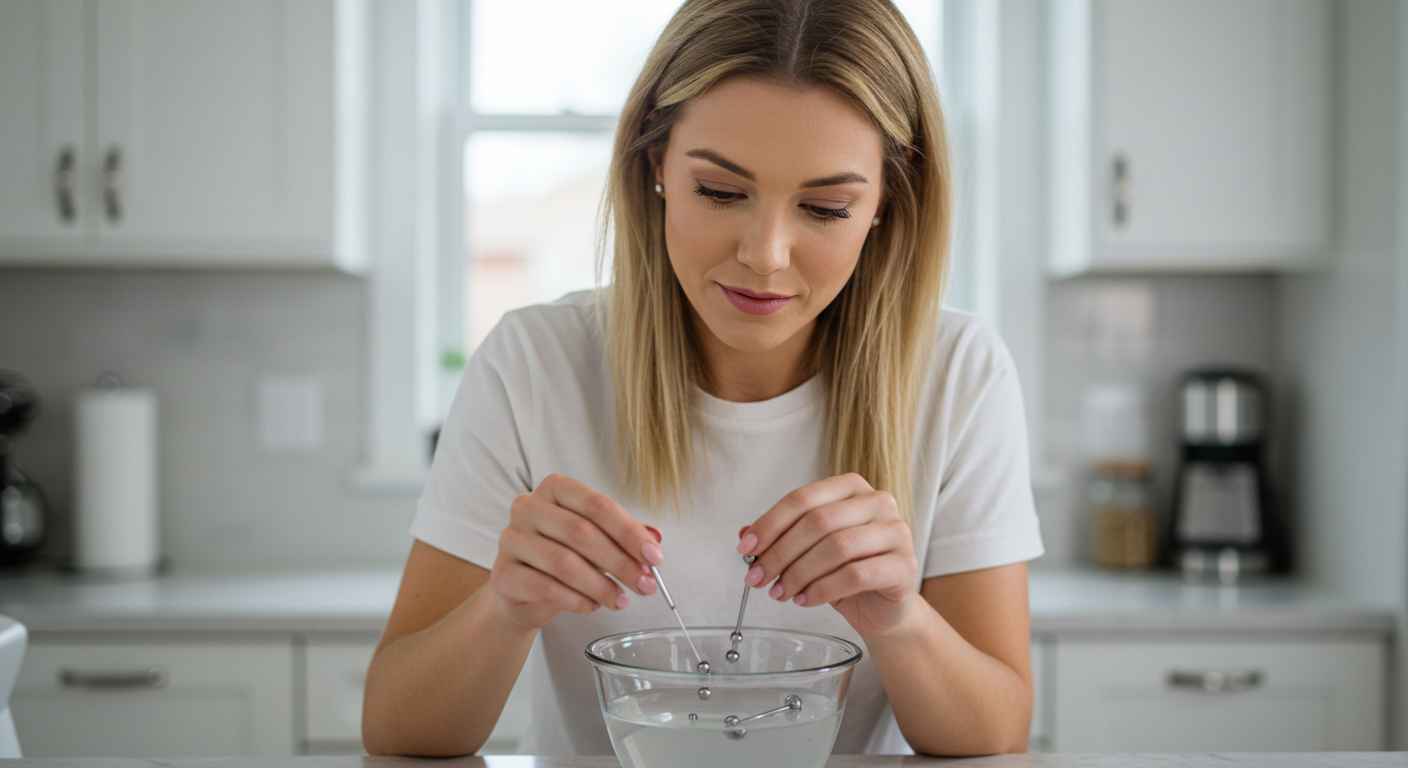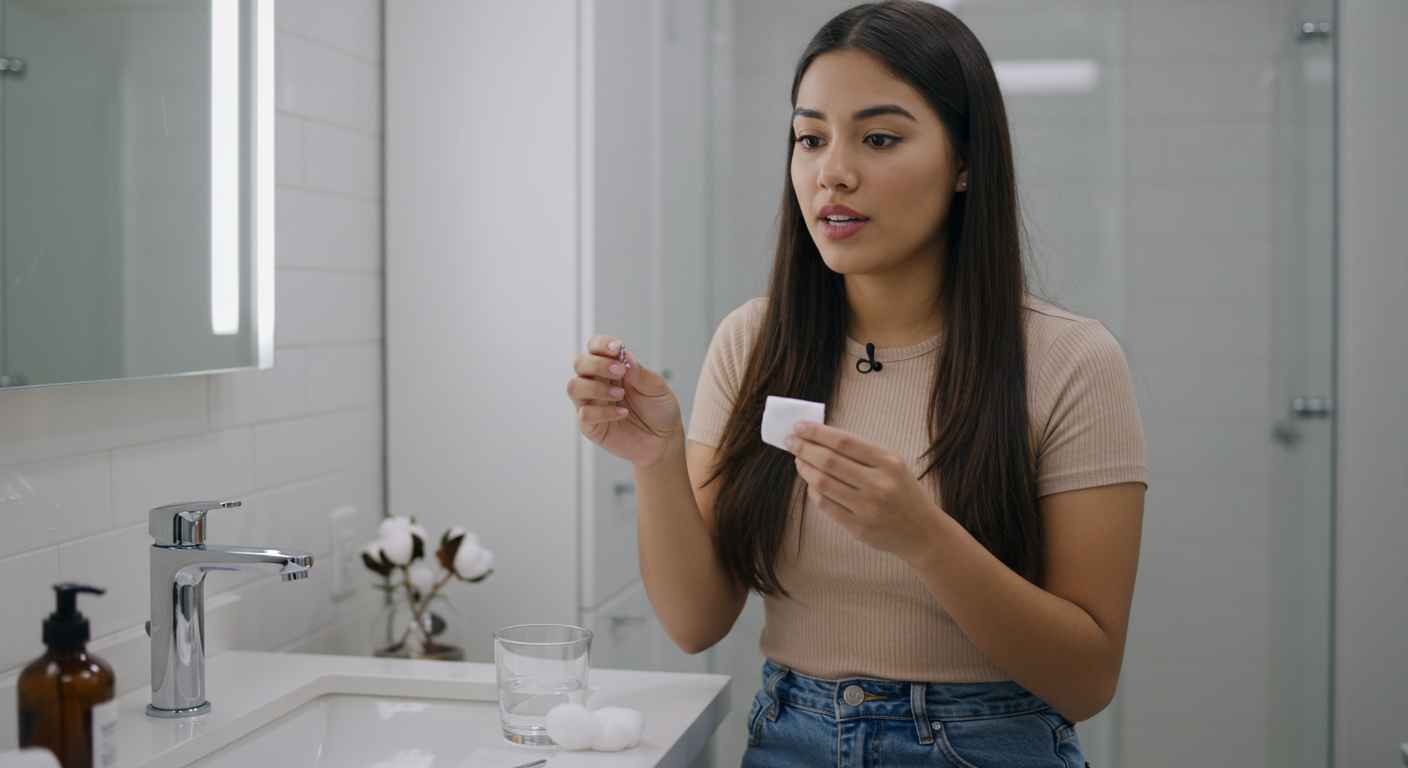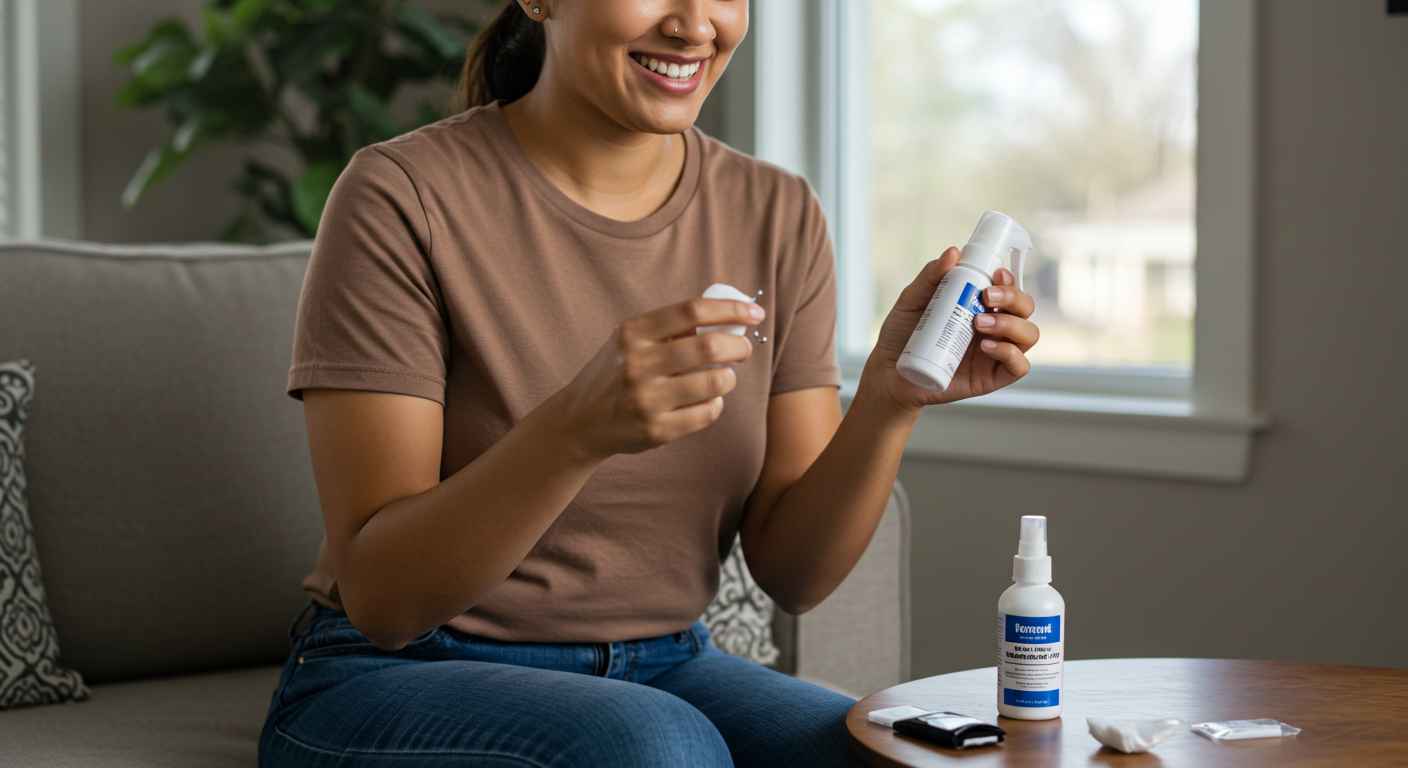How to Disinfect Piercing Jewelry: The Complete Beginner’s Guide
Introduction: Why Disinfecting Piercing Jewelry Is Non-Negotiable
Whether you’re wearing a nose stud, belly ring, or cartilage hoop — keeping your piercing jewelry clean and disinfected is crucial. Not only does it prevent infection, but it also extends the life of your jewelry and supports the overall healing process.
In this step-by-step guide, you’ll learn exactly how to disinfect piercing jewelry safely at home, including dos and don’ts, expert tips, and best practices. Whether your piercing is fresh or healed, this guide is for you.
What Happens If You Don’t Disinfect Your Piercing Jewelry?
If not cleaned regularly, piercing jewelry can accumulate:
- Bacteria and germs
- Dead skin cells
- Oils and residue from skincare or makeup
- Sweat and moisture
- Redness and irritation
- Pain and swelling
- Pus or discharge
- Delayed healing
- Risk of infection
Key takeaway: A clean piercing is a healthy piercing. Let’s learn how to disinfect it properly.

Step-by-Step: How to Disinfect Piercing Jewelry at Home
Before we begin, gather the following essential supplies:
- Mild liquid soap (fragrance-free, antibacterial)
- Saline solution or sea salt
- Cotton pads or Q-tips
- Clean, soft towel
- Boiling water (for metal jewelry)
- 70% isopropyl alcohol (for occasional deep disinfecting)
- A clean container or bowl
Now let’s go through each method:
Method 1: Soap & Warm Water (Best for Daily Cleaning)
Best for: Healed piercings and daily hygiene
Steps:- Wash your hands thoroughly with antibacterial soap.
- Remove the jewelry carefully (if your piercing is healed).
- Mix warm water with a few drops of mild liquid soap.
- Gently scrub the jewelry using a clean toothbrush or your fingers.
- Rinse thoroughly with warm water to remove all soap.
- Pat dry using a clean, soft towel.
Pro Tip: Avoid perfumed soaps or body washes—they can irritate your skin.
Method 2: Saline Soak (Best for Fresh or Sensitive Piercings)
Best for: New or sensitive piercings
How to make saline solution at home:- Mix 1/4 teaspoon of non-iodized sea salt with 1 cup of warm distilled water.
- Soak a cotton ball or pad in the saline solution.
- Gently clean around the jewelry and the piercing hole.
- Rinse with clean water and let it air dry.
Avoid hydrogen peroxide or alcohol on fresh piercings—it delays healing.
Method 3: Boiling Water (For Metal Jewelry Only)
Best for: Deep cleaning stainless steel, titanium, or gold jewelry
Steps:- Bring water to a rolling boil.
- Drop the metal jewelry into the water for 5 minutes.
- Remove using tongs and place it on a clean towel.
- Let it cool and dry before reinserting.
Warning: Don’t use this method for acrylic, plastic, or gemstone jewelry—they may melt or crack.

Method 4: Isopropyl Alcohol or Antiseptic Soak (Occasional Use)
Best for: Monthly deep disinfection (for healed piercings only)
Steps:- Soak the jewelry in 70% isopropyl alcohol for 10 minutes.
- Rinse thoroughly with warm water.
- Let it air dry on a sterile surface.
Note: Avoid alcohol on new piercings — it can cause dryness and irritation.
Can You Use Vinegar or Hydrogen Peroxide?
While vinegar and hydrogen peroxide have antibacterial properties, they are not recommended for piercing jewelry, especially fresh piercings. These substances can disrupt the healing process, irritate the skin, or damage certain jewelry materials.
How Often Should You Disinfect Piercing Jewelry?
| Piercing Type | Cleaning Frequency |
|---|---|
| Fresh Piercings | Twice daily with saline solution |
| Healed Piercings | Weekly with mild soap & water |
| After Illness | Once with alcohol or boiling |
| After Swimming | Immediately with saline rinse |
Bonus Tip: Always disinfect before changing or switching jewelry to avoid cross-contamination.
Material Matters: Cleaning Tips Based on Jewelry Type
| Jewelry Material | Best Cleaning Method |
|---|---|
| Surgical Steel | Boiling water or alcohol |
| Titanium | Soap & water, boiling safe |
| Gold (14k or 18k) | Mild soap only, no boiling |
| Acrylic/Plastic | Saline soak only, no heat |
| Bioplast | Saline rinse, no alcohol |
Knowing your jewelry material helps prevent damage during cleaning.

Common Mistakes to Avoid
- Using hydrogen peroxide or alcohol on fresh piercings
- Scrubbing harshly with brushes
- Skipping hand washing before touching jewelry
- Using dirty towels to dry jewelry
- Cleaning too aggressively or too rarely
Final Tips: How to Keep Piercing Jewelry Clean Long-Term
- Store your jewelry in a sterile container.
- Clean your pillowcases and bedsheets weekly.
- Avoid touching your piercings with dirty hands.
- Always clean jewelry before re-inserting.
- Change jewelry only after complete healing.
Conclusion: Clean Piercing, Happy Healing!
Knowing how to disinfect piercing jewelry the right way helps protect your skin, prevent complications, and ensure your jewelry stays in top condition. Whether you have a nose ring, belly button stud, or cartilage piercing, cleaning it correctly is a simple but essential habit.
Keep this guide bookmarked and make it your go-to resource every time you clean or change your piercing jewelry.
FAQs: Your Piercing Jewelry
Can I use Dettol or Savlon to clean my piercing jewelry?
No, these antiseptics are too harsh for piercing care. Stick to saline solution or mild soap.
What if my piercing still gets infected despite cleaning?
Consult a professional piercer or dermatologist. Avoid removing jewelry during infection unless advised.
Should I disinfect new jewelry before first use?
Absolutely. Always clean new jewelry—even if it’s brand new from the store.
Can I sleep with piercing jewelry without disinfecting it first?
If your piercing is healed and the jewelry is clean, yes. But if you've recently changed or handled your jewelry, disinfect it before reinserting to avoid bacterial transfer during sleep.
What’s the difference between cleaning and disinfecting jewelry?
Cleaning removes dirt and oils, while disinfecting kills bacteria and germs. For piercings, both steps are essential—first clean, then disinfect.
How do I know if my jewelry is safe to boil?
Boiling is safe for metals like surgical steel and titanium. Avoid boiling gold-plated, acrylic, or jewelry with gems—they can melt, discolor, or crack.
Is UV sterilization effective for piercing jewelry?
Yes, UV sterilizers are used by professionals for metal jewelry. However, at-home devices vary in quality. Use it as a supplement, not a replacement for traditional cleaning.
Should I disinfect jewelry after removing it from an infected piercing?
Yes. If your piercing was infected, thoroughly disinfect the jewelry before storing or reusing. Otherwise, it may reinfect a healed or new piercing.
Can I use mouthwash to clean oral piercing jewelry (like tongue rings)?
Use alcohol-free, antiseptic mouthwash for oral piercings. Avoid strong alcohol-based rinses as they can irritate the tissue and delay healing.
How long should I wait after disinfecting before inserting the jewelry again?
Wait until the jewelry is completely dry and cool (if boiled). Inserting wet or hot jewelry can irritate or burn the skin.
Do I need to disinfect jewelry that’s never been worn?
Yes! Even new jewelry can carry manufacturing residue, dust, or germs from packaging and handling.
Can I disinfect piercing jewelry using antibacterial wipes?
Only as a temporary option for healed piercings. Wipes can leave residue and aren’t as effective as soaking in saline or alcohol solutions.
Is antibacterial hand sanitizer safe for jewelry disinfection?
No, hand sanitizer contains additives and perfumes not meant for internal use or sensitive skin. Stick with isopropyl alcohol or saline solution.
 Nose Ring Haven
Nose Ring Haven